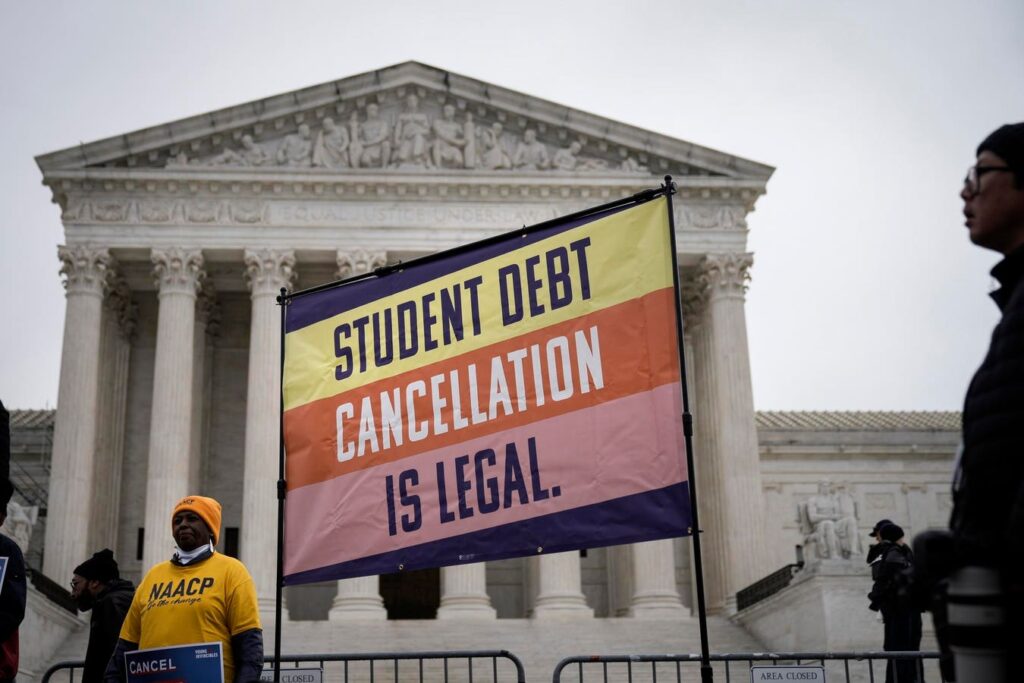On February 28, 2023, a federal judge in Missouri issued a ruling that blocked President Joe Biden’s significant initiative aimed at achieving mass student loan forgiveness, following a series of legal battles over the program. This order came shortly after a Georgia court decided to dismiss the challenges against the initiative and transferred the case for consideration in Missouri. The legal controversy began when seven states, all led by Republican attorneys general, filed a lawsuit in September to halt the Biden administration’s student loan forgiveness plan, which was a revised attempt after the U.S. Supreme Court had already overturned Biden’s first effort. This new initiative, referred to as “Plan B,” was intended to offer substantial debt relief to about 25 million federal student loan borrowers.
Biden’s student loan forgiveness plan focused on distinct groups of borrowers, including those who had been in repayment for at least 20 years, individuals whose loan balances had dramatically increased due to accumulating interest, those who attended low-quality institutions that had lost access to federal aid, and borrowers eligible for existing forgiveness programs but who had not yet applied. The financial implications of this plan were considerable, with estimates indicating it could cost the federal government over $140 billion. The Republican-led states contended that the program exceeded the authority granted by Congress and would financially harm them by reducing tax revenue, which included funds related to state-affiliated loan servicers. In contrast, Biden administration officials maintained that the lawsuit was premature, as the policy had yet to be fully formulated.
Initially, the Georgia court responded favorably to Biden’s team by lifting a temporary restraining order that had halted the implementation of the loan forgiveness plan and transferring the case to Missouri, determining that the arguments concerning the impacts on MOHELA, a Missouri-based loan servicer, warranted consideration by a court in its home state. However, shortly after this decision, the state of Missouri acted swiftly, filing a motion for a preliminary injunction against the plan, which was granted almost immediately by a judge who cited concerns about the potential for irrevocable harm to the judicial review process concerning the program.
The abrupt shift in legal standing prompted criticism from advocates for student borrowers, who labeled the decision as lacking substantive legal reasoning. Persis Yu, the Deputy Executive Director of the Student Borrower Protection Center, denounced the ruling as a politically charged move prioritizing the interests of financial institutions over the needs of borrowers. This decision was approved amid the continuing chaos surrounding the federal student loan system, further leading to disarray for many borrowers who had been awaiting relief from their financial burdens.
The consecutive rulings on Biden’s “Plan B” encapsulated a broader moment of turbulence for the federal student loan system, especially in light of the ongoing legal challenges to the new SAVE repayment plan. This plan, intended to reduce payments for borrowers and provide various paths to forgiveness, has also faced hurdles due to lawsuits from Missouri, claiming that the accumulated financial impact on MOHELA posed and ultimately threatening to end borrower protections. This turmoil has effectively trapped millions of borrowers in a prolonged forbearance situation, exacerbating an already precarious environment regarding income-driven repayment systems.
Compounding the difficulties faced by borrowers, two significant relief programs recently concluded: the “on-ramp” initiative, designed to shield borrowers from the negative consequences of missed payments, and the “Fresh Start” program, which had offered a reprieve from collections for borrowers in default. With these programs terminated, advocates anticipate an impending surge in delinquencies and defaults among borrowers, particularly as the legal complexities surrounding the SAVE plan remain unresolved, casting further uncertainty over the future of student loan forgiveness in the current administration.

